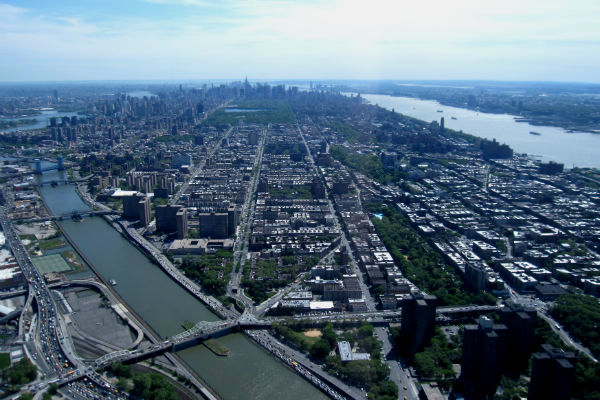 Emergency planning begins at the community level. By preparing an emergency plan before a disaster strikes, community organizations and other community groups can leverage their networks to better position their members and communities to respond and recover from any emergency.
Emergency planning begins at the community level. By preparing an emergency plan before a disaster strikes, community organizations and other community groups can leverage their networks to better position their members and communities to respond and recover from any emergency.
On March 9, 2022, NYC Emergency Management’s Community Engagement bureau held its 10th annual Community Preparedness Symposium: Cultivating Community Connections for Emergencies.
The 10th annual symposium focused on how community organizers, leaders, youth, advocates and/or government can better prepare, respond, and recover from emergencies.
The 2022 symposium had 440 participants. NYC Emergency Management Commissioner Zach Iscol, First Deputy Commissioner Christina Farrell, and Deputy Commissioner of Community Engagement Herman Schaffer delivered remarks on the importance of building a network of resources and community connections for emergencies.
You can watch the 2022 symposium here.
“Our Community Engagement bureau has worked tirelessly to cultivate relationships in every borough to help all New Yorkers prepare, respond and recover from emergencies. Connections with community groups and organizations are a vital part of emergency preparedness, as they strengthen communities through their network of resources, whether the emergency is a power outage, winter storm, flood or a fire,” said NYC Emergency Management Commissioner Zach Iscol. “We look forward to adding more community groups to our roster and building a stronger and more resilient New York City.”
Under this year’s theme of Cultivating Community Connections for Emergencies, participants shared valuable information on how to build a network of resources and connections. Sonal Jessel, director of policy with WE ACT for Environmental Justice, served as the symposium’s keynote speaker.
WE ACT is a West Harlem-based nonprofit group whose mission is to ensure that people of color and/or low-income residents participate and build healthy communities under safe, fair environmental health protection, policies, and practices. Jessel spoke about the importance of planning and preparation in mitigating the inequitable impacts of climate change.
As climate change continues to create more extreme weather events, emergency management agencies and community organizations, are addressing five key factors that make communities of color more vulnerable: income, educational attainment, age, race, and ethnicity.
“Communities of color and low-income face a disproportionately greater threat from the climate crisis, including significantly higher rates of death from extreme heat, the deadliest impact of climate change, yet these communities often have the least resources available to prepare for and mitigate these impacts,” said Sonal Jessel, director of policy at WE ACT for Environmental Justice. “That is why it is critical for frontline communities to organize, plan, and prepare for climate disasters, and work together to advocate for solutions to put an end to this crisis.”
In addition to Jessel, symposium participants and attendees listened to guest speakers discuss the importance of providing resources in multiple languages, how nonprofits can address community needs during an emergency, growing as a community organization active in disaster (COAD), and an introduction into mutual aid networks.
Guest speakers included Joseph Yun, from the Korean Community Services of Greater New York, and is currently a John D. Solomon Fellow with NYC Emergency Management; Andy Aujla and Lina Lee, from Communities Resist Inc. (CoRe); Frank Blancero, from the Staten Island Not for Profit Association and Staten Island Community Organization Active in Disaster (COAD); and Ariadna Phillips, of the South Bronx Mutual Aid Network.
“Research and experience have shown that meaningful partnerships between emergency management officials and local community members, non-profits, and faith-based institutions are critical to the resilience of their community,” said NYC Emergency Management Deputy Commissioner Herman Schaffer. “We are thrilled to share this annual symposium as a key part of our robust programming. We encourage all community leaders to connect with our knowledgeable team to help your community become more prepared.”
Community Preparedness Planning toolkit
New York City Emergency Management’s Community Preparedness Planning toolkit is an interactive booklet tailored to any community and can be used by congregations, housing developments, tenant or civic associations, community boards or coalitions, community-based organizations, or Community Emergency Response Teams (CERTs).
From emergencies like hurricanes and heat waves to fires and utility disruptions, the toolkit reviews the varying threats and hazards New Yorkers may face and provides an overview of the key response roles communities can play to mitigate risks.
For more information visit: https://www1.nyc.gov/site/em/ready/community-preparedness.page.
Become a Harlem Insider!
By submitting this form, you are consenting to receive marketing emails from: . You can revoke your consent to receive emails at any time by using the SafeUnsubscribe® link, found at the bottom of every email. Emails are serviced by Constant Contact








